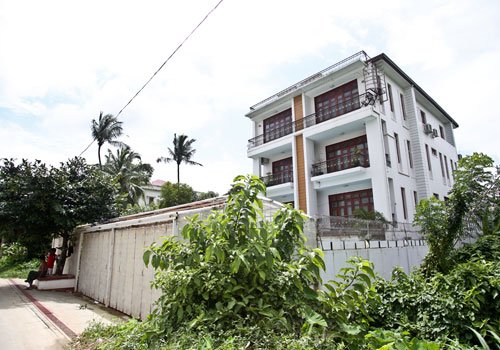Real estate taxes to jump in coming fiscal year
Next year’s rates were approved by parliament on January 22 as part of the 2016 Union Tax Law, and represent a return to 2014 levels.
Transactions will be taxed at least 15 percent, up from the current base rate of 3pc, said U Kyaw Kyaw, deputy director general of the International Revenue Department.
Sales worth up to K30 million will be taxed at 15pc, those worth K30 million to K100 million will be taxed at 20pc and any sales worth over K100 million will be taxed at 30pc, he said. The new rates will take effect from April 1.
Last April the government slashed rates in the hope it would stimulate the torpid property market.
For the past year, deals worth up to K100 million have been taxed at just 3pc. Sales up to K500 million are taxed at 5pc, rising to 10pc for up to K1 billion, 20pc for up to K1.5 billion, and a ceiling of 30pc for sales valued at above K1.5 billion.
Yet despite the low rates, the market did not bounce back. Worse, half-year figures published last October showed tax revenues falling by nearly two-thirds on the year before – from K36 billion to K14 billion.
“We offered tax breaks so that everybody could afford to buy property, but some people who wanted to launder money took the opportunity to buy, based on the low tax rates,” said U Kyaw Kyaw.
“Property taxes are lower than income taxes. We have decided to raise the rate again to control the situation.”
Faced with a slow market and the prospect of higher taxes, real estate agents reacted yesterday with dismay.
“As usual, middle-class people can afford to buy property worth between K30 million and K100 million, and the tax rate for this bracket is very high,” said Daw Moh Moh Aung, general secretary of the Myanmar Real Estate Service Association.
“People might stop paying taxes, so revenues could fall further,” she said, adding that if people don’t pay taxes, they are unlikely to update ownership documents, causing additional problems.
Buyers in Yangon must fill out contracts, register the new owner with Yangon City Development Committee and pay taxes, she said. “This takes around four or five months – if the rate is not stable, it will be an issue.”
“The government needs to boost tax revenues, but the rate should also be affordable,” she added.
Estate agent Daw Win Shwe Wha said she had been optimistic about sales over the coming year until she heard about the new tax rates.
“The property market has been depressed since the end of 2014,” she said. “We were hoping it would get back on track this year, but now that the government has changed the tax rates we can’t predict the market direction. Let’s wait and see.”
Source : http://www.mmtimes.com/
